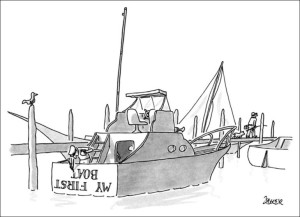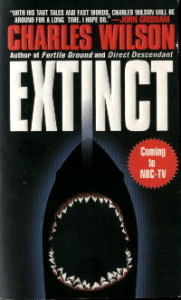Don’t get whistled out of the game on fouls before you have a chance to show off your best moves. – Miss Snark
By PJ Parrish
So I’m watching Hassan Whiteside play in the Heat game the other night and it got me thinking about writing books. Or maybe it was Marco Rubio in his last debate. I dunno. Not sure who inspired me more. But what I want to talk about today is dumb moves.
Shooting yourself in the foot. Stepping in it. Dropping the ball. Screwing the pooch. Whatever you want to call it, this is not something you want to do in your career. Ask Whiteside. He threw an elbow into the face of his Spurs opponent and got ejected (his third this season). Or ask Rubio. He became Chris Christie’s chew toy after he robo-repeated a talking point three times in thirty seconds. (and paid for it by dropping to fifth in the New Hampshire primary.)
Hey, we’re all human. We all make mistakes. Believe me, I have. Some that adversely affected my writing career. So let’s take a look today at some of the wrong moves that can, as the great agent Miss Snark said, get you knocked out of the game before you’ve even had a chance. Your contributions to our guide to dumbness are welcome!
When writing the book…
Don’t chase the trend: We can go way back to Jaws for examples here. In the wake of Benchley’s novel, we quickly got such memorable chum as Megalodon (oil rig explosion unleashes giant shark), Carcharodan (prehistoric shark freed when iceberg melts), Extinct (killer shark preys on boys in Mississippi River) and Meg (really big pregnant shark bubbles up from Marianas Trench and eats dumb tourists.) After Anne Rice, Charlaine Harris and Stephanie Meyers dug up Bram Stoker, we got a full decade of un-deads. And après Dan Brown came le deluge of conspiracies (Templars! Cathars! Christian Inquisitors! Oh my!) Here’s my point: By the time you decide you want to follow a trend in publishing, it has begun to wane (and surely will be over in the 18 months it will take you to write it and get it to market). T.S. Eliot might have said, “Mediocre writers borrow, great writers steal.” But if you’re trying to break into the bestseller bank, chances are the money’s already gone. So think twice before you use that unreliable narrator or try to wedge “girl” in your title. You are a snowflake. You are unique. Let your book reflect that.
Don’t be content with dull titles: Your title is your book’s billboard, meant to be glimpsed and grasped as a reader speeds by in the bookstore or on Amazon. It is ADVERTISING and it must convey in just a few words the essence, heart, and all the wonderful promise of your story. Work hard on this. Yes, slap anything on the file name as you work, but always, as you work through the writing, search for that pithy phrase that capsulizes what you are trying to say. Try Shakespeare (The Fault Is in Our Stars, Infinite Jest) or poetry (No Country For All Men — Yeats). Go for weird juxtapositions (Zen and the Art of Motorcycle Maintenance) or intrigue (Midnight in the Garden of Good and Evil or Then There Were None) or humor (Hello, Vodka, It’s Me, Chelsea!). Twist an old phrase (Dr. Suess’s You’re Only Old Once.). So many times, I read manuscripts (or published books) where the title feels like an after-thought, almost as if the writer used up all his juice just getting 300 pages down, breathed out whew! and then went back to page 1 and typed The Templar Conspiracy Book I. Click here for some good tips on titles. Click here if you want to read the worst titles of maybe all time — and see some butt-ugly covers. Which leads me to…
Don’t use ugly covers: Now, if you’re traditionally published you have little control over this. (although some enlightened publishers are getting better about seeking author input.) But if you are self-pubbing, don’t let your nephew who flunked out of Pittsburgh AI design your cover. Don’t go find free lousy images and try to do this yourself. Nothing screams amateur louder than an ugly cover. It tells potential readers that you think so poorly of your story that you’re willing to send it out in the world in dirty sweatpants and a Led Zeppelin World Tour 1971 T-shirt. Pay someone to do this. It’s worth every schekel. If you cheap out, don’t be surprised to see your ugly cover end up HERE.
After the Book is Done…
Don’t forget to copy edit it: This is tedious. This is awful. This is grunt work that comes after even the hell of rewrites. Well, tough. After you finish your filet mignon, you have to floss. You might be really tired of looking at the thing and all you want to do is get it out there in the world, wait for someone to love it, and throw shekels your way. Resist the urge to do this. Instead, PRINT IT OUT and read it for typos, misspellings, stupid mistakes, grammar lapses, brain farts. After you’re done, go back and do it again — maybe with a ruler held under each line so you go reeeeeal slow. I know authors who copy edit their stuff backwards so the mistakes jump out better. You won’t get all the bad stuff. But the goal is to make it as clean and professional as you humanly can. If you don’t know the difference between lay and lie, find someone who does. Agents and editors all say if they see dumb errors in manuscripts, they won’t read on. No one will take your words seriously until you do.
Write a great query letter: This isn’t easy but it’s really important. Agents want to fall in love with new talent and every affair begins with a magic moment. A great query is simple, direct but has a terrific hook. Which is not the same as a plot summary. In Hollywood-speak, it is a “log line” that capsulizes the essence of your plot with a strong emotional pull. (ie from Aliens: “In space, no one can hear you scream.”) This is hard writing. Even if you self-publish, learning how to write a great tease for your book will serve you well when you go to write that Amazon copy. Click here to see a simple and very serviceable query template.
Have some cajones: There is nothing worse than a falsely humble author. If you are doing a book signing, would you tell someone who walks up to your table, “Oh, I know you’re busy…you don’t really want to know about my book.” So, in your query letter, don’t spend precious words apologizing for “wasting” an agent’s time by sending them your letter. If you don’t have faith in your book, how do you expect anyone else to? Even if you aren’t a pro yet, act like one. Be like that wide receiver who doesn’t spike the football in the end zone — act like you belong there. (I got this one from a great blog by agent Jenny Bent. Click here to read the rest of her advice on submitting.)
Follow the rules when submitting your novel: Reputable agents are good people; they truly want to find the next best thing because they love good books. So be a pro and follow their rules. Research what types of novels they are looking for. Find out their names and how to spell them. (DEAR AGENT is sorta off-putting, you know?) Format your manuscript in the way they want it — ie, double-spaced, courier or roman, etc.) And finally: Don’t forget to number your pages. Don’t use colored paper or add weird stuff like glitter. And for God’s sake, don’t call your book “a fiction novel.” You laugh? I saw the actual query letter that had that gem.
I don’t think that guy ever made it off the bench.



Just curious whether you think titles are of more or the same importance in the digital age as when most were in print?
Hey there BK,
Yes, I think the title is as important as ever. Maybe more so because there are so many more books being sent out there to compete for reader attention. A title is sorta of the author’s voice in miniature — it signals to potential readers the soul of not just the story but the writer himself. A reader wants to have a hint/clue what a book is about. (and I don’t mean just plot). A great title telegraphs this immediately.
“Something Wicked This Way Comes.” By Ray Bradbury for instance. What a GREAT title….encapsulizes horror, intrigue, and a sense of doom. And no way can a bookstore or Kindle browser mistake a book with that title for a 19th century bodice ripping romance.
Bradbury got that title from “Macbeth,” by the way.
Now covers? That has changed somewhat, I think, due to digital books. Because the images in the Kindle/Nook store are thumbnail size, they have to register in the shopper’s brain more easily. So subtle colors and fonts don’t always work well. But that’s a whole nother post!
I couldn’t agree more. Hopefully this post will save someone from making a critical mistake.
Great post. Also, hilarious link to the bad titles and ugly covers.
I’m still laughing about Rubio ending up as Chris Christie’s chew toy!
Mike,
I can’t say that is my phrase. I heard it on TV and would have credited it but couldn’t remember. Might have been Chuck Todd or Sen. Lindsay Graham. This election season has given us a whole new set of comedians, some of whom work in D.C.
The link to bad covers highlighted the fact that even with some good images, layout can really be a mess. One of the major reasons to use a pro for the cover art is that they should understand (if they really are pros) things like aspect ratio, color, and contrast to achieve something striking. I think most indie authors can afford to hire someone to do a good cover without breaking the bank.
Amen, Stephen! Picking the image is just the first possible pitfall. Finding the right font that reflects the tone of your book but is still easy to read is an art. And don’t get me started on kerning. 🙂
I’m still giggling at some of the bad examples. Oh, my. Thanks for these reminders. Of all of them, I find writing a compelling hook for a query letter is hardest. Practice and feedback and more practice, right?
Another first-rate post, Kris. When my agent saw “fiction novel,” those words consigned the entry to the circular file. Another deal killer “thriller novel.”
I know what you mean about titles — my most recent romance was about an oligarch, and the title of the file was Oligarch until I was about ready to send it off to my editor. I looked through the book and realized that the Mistral (it takes place on the Riviera) was a big element– so A Cold Wind was born!
Pingback: Top Picks Thursday 02-18-2016 | The Author Chronicles